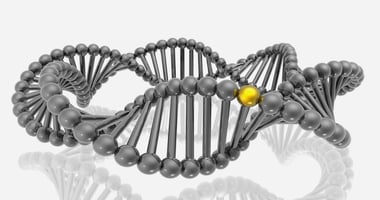Much of the genetic risk for schizophrenia is inherited, but not all. Now, a study finds that a...
Twins of Patients With Bipolar Disorder May Have ‘Reproductive Advantages,’ Study Suggests
 |
Using the Swedish Twin Registry to identify study participants, researchers in the Department of Psychiatry at Yale University School of Medicine evaluated temperament and neurocognition—traits important in selecting a mate—in twin pairs who were discordant for BD and in twin pairs who did not have a mental illness.
Results showed that nonaffected siblings in the BD twin pair were more likely to score higher on “positivity” temperament scales—characterized by social ease and assertiveness—than control subjects and the twin who had BD, with the latter scoring high on the “negativity” scale. As it relates to neurocognitive abilities, nonaffected siblings of BD patients showed superior performance compared with controls on tests of verbal learning and fluency, while siblings with BD showed performance decrements. "These findings contribute to mounting evidence linking creativity and enhanced cognitive functioning and risk for bipolar disorder and may inform models of mechanisms underpinning this association. That liability for bipolar disorder may confer temperament and neurocognitive benefits could provide one explanation for the genetic persistence of this illness," the authors said.
The study's senior author, Tyrone Cannon, Ph.D., a professor of psychiatry, told Psychiatric News that, "If people at genetic risk for bipolar disorder have higher levels of these traits than the general population, then this pattern would support the theory that some of the bipolar-promoting mutations are expressed in the form of positive temperament and intellectual features that, in turn, lead to greater fertility—and hence, greater likelihood of persistence of those genes [associated with the mood disorder]."
To read about the persistence of genes associated with bipolar disorder and other mental illnesses, see the Psychiatric News articles, "Genome Analysis Quantifies Risk Across Psychiatric Disorders," and "Global Genome Initiative Finding Roots of Mental Illness."
(Image: klublu/shutterstock.com)





